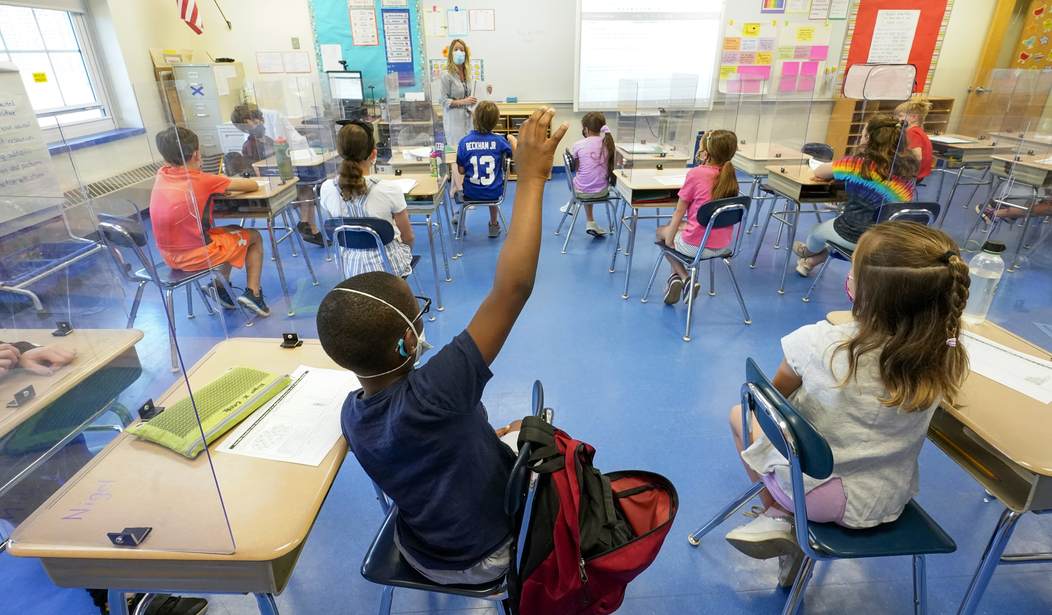We’re in a major fight over Critical Race Theory these days, and Alabama just secured a victory on behalf of the anti-crowd.
Due to a decision last week, children in public schools won’t be served lessons on race-based guilt.
As relayed by Alabama Daily News, the State Board of Education held a vote Thursday to ban CRT.
Gov. Kay Ivey — board president — supported the ban and hailed top-notch schooling:
“Our teachers and parents, they know how to handle this situation. Everybody wants their child, every child, every student to have a quality education so they can be prepared to succeed in life, be self-sufficient and sufficient in careers.”
Not everyone agreed — the measure passed wholly according to party and racial lines.
The Montgomery Advertiser notes all the board’s Republicans are white; the two Democrats are black.
Yvette Richardson — who voted against — asserted teachers should teach what they think should be taught:
“As it stands now, our teachers have all taught about civil rights, they taught about slavery and it’s never been a problem. Therefore, as we go forward, I just want to be on record saying that our teachers are to be given the autonomy to utilize their expertise, the autonomy to do what they know what’s right in the best interest of our children.”
If I understand correctly, “expertise” above could be substituted with “opinion.”
As for the substance of CRT, Yvette appears of similar mind as Don Lemon, who put it thusly in June:
“[H]aving people come to the realization — especially ancestors of slaves — that they were enslaved, and that they were beaten and that they were sold, that they weren’t able to accrue wealth, that they weren’t able to go to school, they weren’t able to go vote, you think that makes them feel good?”
However, Alabama’s initiative takes aim far beyond slavery’s existence. In fact, it addresses more than race.
Courtesy of The Preservation of Intellectual Freedom and Non-Discrimination in Alabama’s Public Schools:
Be it further resolved, that the Alabama State Board of Education believes that no state education agency, local education agency, or school should train any administrator, teacher, staff member, or employee, or teach any students, to believe that one race or sex is inherently superior to another race or sex; that members of one race or sex cannot, or should not attempt to, treat others disrespectfully due to race or sex; or that fault, blame, or bias should be assigned to a race or sex, or to members of a race or sex solely or partly because of their race or sex…
The measure “acknowledges the right to express differing opinions, foster and defend intellectual honesty, engage in freedom of inquiry, and honor freedom of speech as required by the First Amendment of the U.S. Constitution in the public schools of Alabama.”
Moreover, in the name of “individual rights, equal opportunity, and individual merit,” it bans “concepts that impute fault, blame, a tendency to oppress others, or the need to feel guilt or anguish to persons solely because of their race or sex.”
State Superintendent Eric Mackey said the move shouldn’t change anything:
“We don’t think there is anything in our courses of study — we’ve done a deep dive — that will be in conflict with the current resolution. So it really has no effect on our current course of study.”
But member Wayne Reynolds told ADM the vote was necessary:
“We need to take a stand. The state board is responsible for putting the stake in the ground and saying this is what we believe. I believe in this very strongly.”
We’re certainly undergoing radical change when there’s a need to ensure kids aren’t assigned guilt by race or sex; and when there’s compulsion to reaffirm freedom of speech.
Such notions just a few years ago would’ve been confidently assumed.
Confidence, clearly, has waned.
As for Alabama’s legislature, multiple bills concerning “divisive topics” in the classroom are percolating for January.
Given the Board of Education’s vote split, “divisive” isn’t wholly foreign to the state’s Powers That Be.
America, like the board, appears to be parting.
In a way not contemporarily seen before.
How do we close the chasm?
Whatever way that is, it surely isn’t helped via separating people by race.
Or, really, by anything.
-ALEX
See more pieces from me:
University Announces Mentorship Program, Only for ‘Black, Latino, Native American’ Students
Express Yourself: New Smartphone Emojis May Include a ‘Pregnant Man’
Beehold: The Return of the Murder Hornet
Find all my RedState work here.
Thank you for reading! Please sound off in the Comments section below.













Join the conversation as a VIP Member